Creatinine is an important waste product produced by the muscles during the breakdown of creatine, which provides energy to muscles. This waste product is transported through the bloodstream to the kidneys, which are filtered and excreted in the urine. Measuring creatinine levels in the blood and urine can provide crucial information about kidney function and overall health. In this blog, we will discuss what creatinine is, the normal levels, what high or low creatinine levels mean, and the albumin/creatinine ratio in urine (ACR).

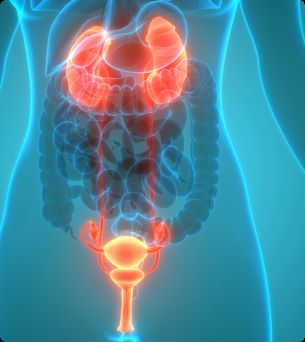
What does creatinine indicate about kidney function?
Creatinine is measured in the blood as an indicator of kidney function. Healthy kidneys efficiently filter creatinine out of the blood. When the kidneys function less effectively, the creatinine level in the blood rises because it is not being properly excreted. A high creatinine level can, therefore, indicate reduced kidney function or kidney disease. On the other hand, low creatinine levels may also point to other health issues or conditions. That’s why it is important to regularly monitor creatinine levels, especially in people with risk factors for kidney problems.
What is the creatinine level?
The creatinine level is usually measured in both blood and urine. Below, we discuss the normal levels and what can be considered an abnormality.
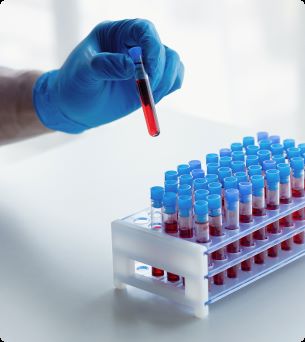

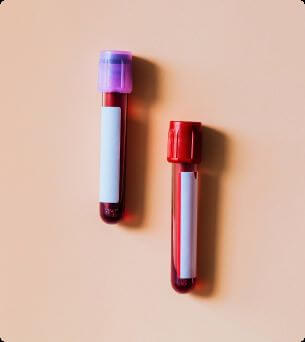
Creatinine levels in the blood
The normal creatinine level in the blood can vary depending on age, gender, and muscle mass. In general, the values are as follows
- For men: 60-110 micromoles per liter (µmol/L)
- For women: 45-90 micromoles per liter (µmol/L)
Creatinine levels in the urine
The creatinine level in the urine also provides important information about kidney function. Normal values depend on daily urine production but are generally around 0.8-1.8 g/24 hours for men and 0.6-1.6 g/24 hours for women.

What does the Albumin/Creatinine Ratio (ACR) in urine indicate?
The albumin/creatinine ratio (ACR) in urine is an important test used to screen for kidney diseases, especially in people with diabetes or hypertension. Albumin is a type of protein that is not typically found in large amounts in the urine. An elevated ACR can be an early indication of kidney damage.
What are normal Albumin/Creatinine Ratio values?
- Normal: Less than 30 mg/g
- Microalbuminuria: 30-300 mg/g (a sign of early kidney disease)
- Macroalbuminuria: More than 300 mg/g (a sign of advanced kidney disease)
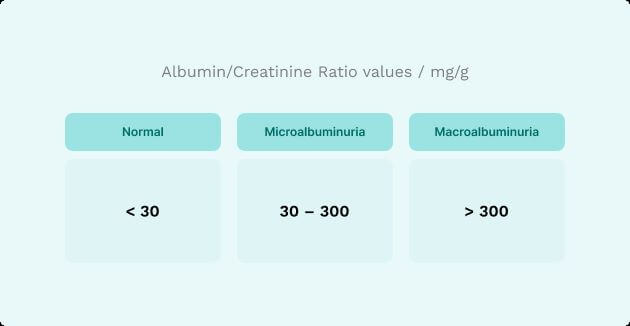
When should you be concerned about creatinine levels?
An abnormal creatinine level can indicate various health issues. When the creatinine level in the blood is higher than normal, it may suggest kidney disease or kidney failure. Low levels can also be problematic and may indicate muscle loss or certain liver diseases. It is essential to contact a doctor for further examination if creatinine levels are abnormal.
Creatinine level too high: causes, symptoms, and what to do
A high creatinine level can have various causes and show symptoms:
Causes of a high creatinine level
- Kidney diseases: Reduced kidney function or kidney failure.
- Dehydration: Insufficient hydration can increase creatinine concentration.
- Medication use: Certain medications, such as non-steroidal anti-inflammatory drugs (NSAIDs), can affect kidney function.
- Intense physical activity: Excessive muscle breakdown can lead to elevated creatinine levels.


Symptoms of a high creatinine level
- Fatigue
- Nausea and vomiting
- Swelling in the limbs
- Changes in urination
What to do with a high creatinine level
If you have a high creatinine level, it is important to consult a doctor for an accurate diagnosis. Treatment may vary from changes in diet and hydration to medication or further medical interventions, depending on the underlying cause.



Creatinine level too low: causes, symptoms, and what to don
A low creatinine level can also signal health issues.
Causes of a low creatinine level
- Muscle loss: For example, due to muscle atrophy or aging.
- Severe liver disease: A poorly functioning liver may produce less creatinine.
- Excessive hydration: Drinking too much water can lower the creatinine concentration in the blood.
Symptoms of a low creatinine level
- Muscle weakness
- Fatigue
- Weight loss



What to do with a low creatinine level
A low creatinine level can usually be addressed through changes in diet or physical activity. However, medical assistance is necessary if it is accompanied by other serious symptoms.

What does the Albumin/Creatinine Ratio (ACR) in urine indicate?
The albumin/creatinine ratio (ACR) in urine is an important test used to screen for kidney diseases, especially in people with diabetes or hypertension. Albumin is a type of protein that is not typically found in large amounts in the urine. An elevated ACR can be an early indication of kidney damage.
What are normal Albumin/Creatinine Ratio values?
- Normal: Less than 30 mg/g
- Microalbuminuria: 30-300 mg/g (a sign of early kidney disease)
- Macroalbuminuria: More than 300 mg/g (a sign of advanced kidney disease)
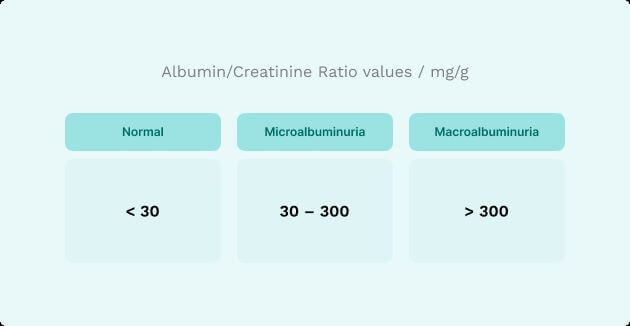
Testing for Creatinine: factors that can affect test results
When testing for creatinine, several factors can influence the results:
- Diet: A diet rich in meat can increase creatinine levels.
- Physical activity: Intense exercise can temporarily lead to elevated creatinine levels.
- Medication: Certain medications can affect kidney function.
It is therefore important to inform your doctor about your diet, lifestyle, and medication use for an accurate interpretation of the test results.



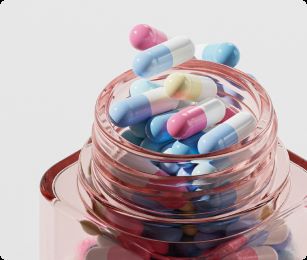
Testing creatinine at home with Easly
With Easly, you can easily test your creatinine and other blood values from the comfort of your home. This offers the advantage of convenience and privacy, without the need to visit a doctor. After the test, you will quickly receive feedback on your blood values, helping you to detect potential health issues early and take action.
Conclusion
Creatinine is an important indicator of kidney health and overall well-being. Regularly monitoring your creatinine levels, both in blood and urine, can help in the early detection of kidney problems and other conditions. Understanding the significance of your creatinine levels is essential, and always consult a doctor if you have concerns. With tools like the Easly home test, you can easily gain insights into your health.







